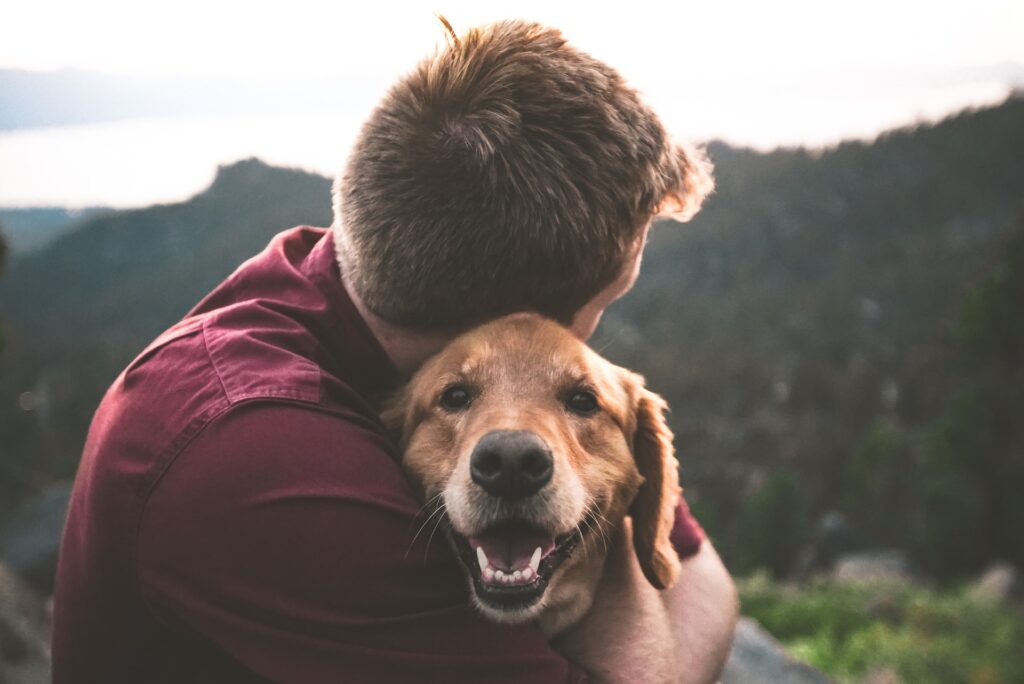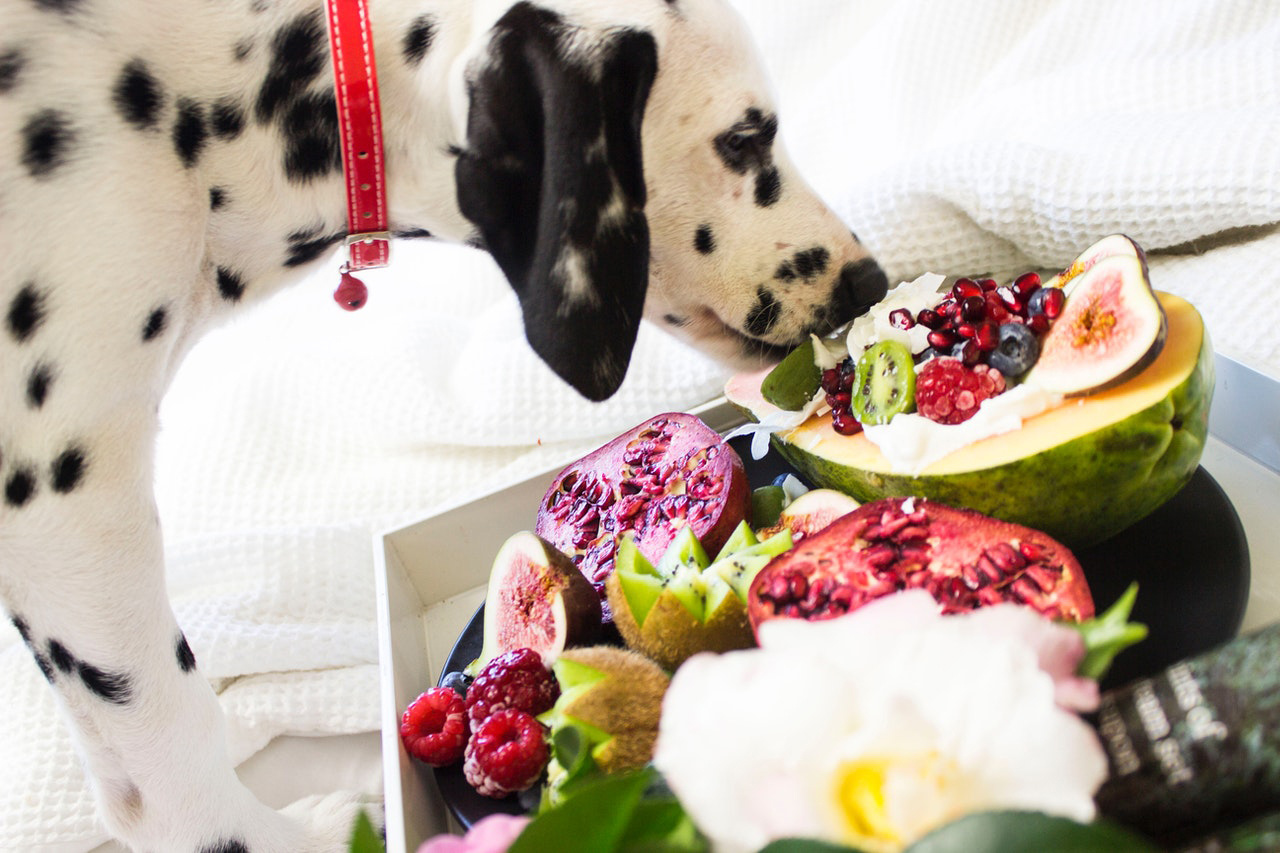by | Jun 30, 2022 | Pets |
You must consider certain things when welcoming a new animal home. Costs can add up, and some animals require special attention. Here are some top things to remember.

Daschund puppy chewing a stick – Image Courtesy of Pixabay
The Provenance of the Breed
Due to the popularity of pets like Chihuahuas, Ragdoll cats, and exotic Macaw parrots, some breeders will use less desirable breeds to produce offspring with similar appearances. After that, they will offer subpar crossbreeds for sale to unwary clients. Then, instead of being a tiny lapdog, your toy Yorkie might grow to be the size of a Beagle. Insist on your DNA testing for the animals if you will spend significant money. You can obtain breeding documentation from any reputable breed, such as Ausmate Australian Cobberdogs.
How Much the Animal Will Cost
A devoted pet can be acquired for nothing or a meager cost. Food and accessories aren’t free, though. Additionally, depending on the breed, you might or might not need to have your pet groomed. But doing so can cost you thousands of dollars every year. Additionally, some animals require specific diets to remain healthy. Therefore, always factor in the cost of owning a new pet and the price you will pay a breeder for an individual animal. Should that not be the case, you might have to make the difficult choice to sell your pet.
Consider Time When Welcoming a New Animal
It is unfair to get a new animal when you aren’t around to help it adjust to its new home. This is especially true for kittens and puppies, aware of their environment and other animals and humans. Smaller domesticated mammals are also intelligent and need care. These are all highly social animals, and they respond to their surroundings. They, therefore, need love, care, and attention constantly. So, suppose you can’t commit the time necessary for the animal to adjust to a new home. In that case, you might want to postpone getting a new pet.
Special Requirements for Your Pet
Just about every animal has a variety of breeds. The most well-liked pets are not any different. But, depending on the species, bunnies, cats, and even dogs have different needs. For example, larger dogs, such as Golden Retrievers, typically require much more outdoor exercise than smaller dogs. And some cats require a particular diet. For instance, with their flat faces, Persian cats have difficulty eating. So they need a unique kibble that aids in dental hygiene. They also require a diet rich in L-tyrosine and fish oils to keep their long, glossy coats healthy.
Whether It Has Come from a Good Breeder
The pet trade is a massive global industry. Sadly, many dishonest breeders exploit this and use their animals on breeding farms. As a result, newborn animals are bred industrially, seriously harming their parents. In addition, due to their inability to get enough milk after birth, many babies are left with physical and mental disabilities. So, for a clear conscience and to help end this brutal practice, always check the credentials of breeders, especially if they offer animals at suspiciously low prices and quicker than others.
Summary
When welcoming a new animal, you must think carefully about certain things. These include the breed of the animal, how much it is likely to cost you, and any special dietary requirements.
by | Apr 1, 2022 | Pets |
There’s no denying that having a pet cat is a rewarding experience. Cats are quiet, engaging, and playful pets, and they’re just as independent and love to explore new places as you do.
They’re also reasonably low-maintenance as pets go; you don’t have to take them out for walks as they do that themselves, and they’re pretty small compared to most dog breeds. Photo Source
Photo Source
Cats are also great for children and adults alike, and when you get a pet cat, they will soon be part of your family. If you’ve never had a pet cat before, the following illustrates what it’s like to have one:
They Will Be Around For A Long Time
While cats don’t live quite as long as tortoises, they can live for up to 20 years in a happy, forever home. That means you’ll have lots of happy memories together, and you’ll have a lot of time together to learn about each other’s routines and habits.
Of course, cats sadly don’t live forever. When they eventually head over that rainbow bridge, you’ll have to think about a cat cremation or burial for your feline friend – and that’s undoubtedly the saddest part of having a pet cat.
They Can Boost Your Mental Health
It’s a well-known fact that animals provide humans with mental comfort, especially during strife and stress. Cats have a very therapeutic quality about them, and they’re very beneficial for lowering pressure and anxiety levels in their owners.
If you have had a bad day at work, for instance, and come home after a long day, getting greeted by your pet cat can make noticeable improvements in your mood.
They Will Keep You Company
When you live alone, you can sometimes feel isolated and lonely if you don’t have an active social life or spend some of your time working somewhere.
Having a pet cat can help people who live alone combat loneliness and feel isolated from the world.
The thing about cats is that they offer unconditional love to their owners, and they can even provide more love and emotional support than some close friends and family members.
They Aren’t Loud
If you had owned a dog in the past or perhaps had one in your family when you were growing up at home, you’ll undoubtedly remember how dogs can be loud.
Some breeds can bark all the time, even if nothing mainly happens in the homes that might cause them concern. One obvious fact about cats is that they don’t bark. You might hear the odd “meow” from them when they’re hungry or want to go outside, but that’s it!
They Can Stay Indoors
Lastly, do you live in an apartment or perhaps next to a busy road? If the answer is yes, you’ll likely feel hesitant about letting your cat go outside. Did you know that it’s possible to have indoor house cats?
Some breeds are better suited to being indoors than others, so it’s something to keep in mind when looking for a new indoor feline friend to join you in your home.
by | Dec 28, 2021 | Pets |
A dog is man’s best friend. They are loyal, loving, and provide great company. Owning a dog comes with many responsibilities. If you consider getting a new dog or already have one, you need to know some basic information about taking care of it correctly.
 Photo by Eric Ward on Unsplash
Photo by Eric Ward on Unsplash
Here are eight tips on taking better care of your dog.
Feeding
When you first get a new dog, the breeder may already have given them their first round of shots and deworming medication. After getting your new pet home, please take it to the vet as soon as possible for further images and deworming medication (as well as an examination). When it comes to feeding, consult your vet about what food is best for dogs. Food can have a significant impact on the health of dogs.
Shelter
Dogs need shelter just as much as people do. Depending on where you live, building a dog house may be too expensive or impossible for you. If that’s the case, you can purchase a dog house at most pet stores. Put the dog house wherever it will be most convenient for you to let your dog out and take it in during winter or rainstorms.
Exercise
Dogs need exercise just as much as people do too. Dogs can get a lot of energy out by running about an enclosed area such as a backyard. If your dog does not have an enclosed area to run around, it can still burn off energy by running about the house and playing with you.
Training
Dogs need training just as much as people do too. Dogs should be taught basic commands such as ‘come’ and ‘sit.’ Your dog will also need to be trained not to bark excessively and use the bathroom outside. You can take your dog through a professional training course or prepare it yourself. Sometimes you need a specialist to assist, like Havanese dog expert Kerris.
Grooming
Dogs need grooming just as much as people do too. If you have a long-haired dog, you will want to brush it daily and bathe it once a week. If you have a short-haired dog, you will only need to brush it 2-3 times a week and bathe it once every two weeks.
Dealing With Illnesses
Dogs get sick just as much as people do too. Dogs can get all kinds of illnesses, such as the flu or diarrhea. If your dog becomes sick, take it to the vet immediately. Please do not treat it yourself unless you are an experienced pet owner who has dealt with the same illness before.
Spaying/Neutering
Female dogs can get pregnant just as much as people do too. Since there are millions of dogs without homes, it is much better to spay/neuter them to not reproduce. This will also cut down on the population of dogs without homes by half or more.
Good Behavior
Dogs can misbehave just as much as people do too. Dogs can be stubborn and rude if not shown who’s boss (and you should be the boss). If your dog doesn’t obey you, make sure you always feed them by hand and never give them anything off the counter or table. Dogs will learn that there is no food for them if they don’t follow the rules.
There You Have It!
These are just some of the most important things to remember when owning a pet dog. Do not forget that dogs are great companions who can provide you with hours of fun and entertainment!
by | Nov 12, 2021 | Pets |
Larger dogs have different needs from smaller dogs. If you’re thinking of getting a bigger dog breed, you may want to consider a few of these questions.
 Photo by Yaroslav Shuraev from Pexels
Photo by Yaroslav Shuraev from Pexels
Have you got enough space?
A large dog may not be appropriate for a small apartment. Dogs need lots of space to run around; otherwise, they may feel cramped and unhappy.
Keeping a dog in a small apartment is possible if you’re able to get your dog out frequently throughout the day. Just be wary that there could also be rules against pets if you live in an apartment or the threat of complaints from neighbors – check what the rules are and check in with your neighbors before getting a dog in an apartment.
Have you got time to exercise your dog?
Large dogs typically need a lot more exercise than smaller dogs. Exercise will keep dogs happy, protect their joints and prevent weight gain. Make sure that you’ve got the time in your day to go on walks and play with your dog.
Some large dog breeds don’t need a lot of exercise, such as greyhounds and tibetan mastiffs – if you don’t like the idea of epic walks, these breeds could be a good choice.
Is their bed large enough?
Many owners of large dogs make the mistake of choosing a dog bed that is too small. A bed that’s too small could be uncomfortable for your dog. For larger dogs, it could be worth looking out for specialist dog beds built for these breeds. You can find specialist dog beds at sites like Pawpedics.
If you plan to keep your dog in a crate, you should also make sure that this is large enough. A regular crate may be suitable when they are a puppy, but they could soon outgrow this.
Do you know what type of food they need?
Large dogs have different nutritional needs from smaller dogs. While they tend to eat more food than smaller dogs, they often require fewer calories per serving than large dogs. This is why it’s worth buying specialist food for large dogs rather than generic dog food – you can be sure that your dog’s nutritional needs will then be met. Check out this guide at Rover on the best foods for large dogs.
Are you prepared for the higher cost?
Larger breeds are a lot more expensive than smaller breeds. Not only will you pay more to buy a large dog and pay more for their food, but you could also find that vet bills/pet insurance rates are much higher – unfortunately, larger breeds are more susceptible to health problems such as joint issues and bloat.
Make sure to factor in the cost of looking after a large dog into your budget. There are ways to save money on owning a large dog that could make it more affordable such as making your toys, doing your own grooming, and keeping them exercised to reduce the risk of joint problems.
by | Oct 20, 2021 | Pets |
Improving and maintaining your dog’s health is crucial for their lifespan and happiness. A healthy dog is a happy dog. Sometimes, you don’t know when something is wrong. It is difficult for a dog to communicate if they are feeling unwell or upset. However, it can maintain their health; then, they will rarely encounter physical or mental pain. On that note, here are some tips to improve your dog’s health.

Image by PicsbyFran from Pixabay
Feed them right
Just like humans, dogs need to be fed the right food. Without it, their health can deteriorate, and they might be vulnerable to illnesses and mental health problems.
The right food should contain plenty of essential nutrients that will maintain your dog’s weight and energy. And, it is more than their meals that need to be nutritious.
Using a brand like Superior Farms will ensure that your dog gets all of the nutrients they need from their food. With chews and treats of different flavors, you will always be able to find something that your dog will enjoy and be satisfied with.
Different types of exercise
Making your dog more active is an obvious answer to achieving better health. But, it isn’t all about walking that can help them maintain enough activity. Although you should walk your dog once a day (or more if they need it), there are other ways to make your dog more active.
Some ideas for physical activities that you can your dog can enjoy together include:
* Jogging. Should your dog be young and fit enough for running, you can take them on a jog with you. They can be your buddy to keep you going while enhancing their physical fitness and stamina.
* Cycling. Again, if your dog can keep a good pace, you can take them cycling with you. They can run alongside you and enjoy a run while you want your bike.
* Swimming. Although not every dog likes the water, some do. Therefore, you could take them for a swim in your local lake and let them be adventurous while stimulating and fulfilling their physical exercise needs.
Don’t say yes to every vaccine.
Although dogs do need some vaccinations to protect their health, they don’t need them all. Some vets tell you they do for their own pockets. Therefore, do some research to see whether or not your dog needs the vaccination.
Sometimes, a vaccine can make your dog sicker or catch an illness that they could have otherwise avoided.
Give them love
Dog’s love to be loved. It stimulates their brain and makes them happier pets. Therefore, ensure to give them plenty of love every day.
Although your schedule might be busy, you know how it feels to receive love. Your dog will give you plenty of love back when you give them your care and attention. It could be as simple as giving them a cuddle or playing catch with them for 20 minutes. Any alert will help your dog feel protected, which is crucial for their mental health.
by | Oct 5, 2021 | Pets |

Image Credit
The first time you own a pet is an exciting experience. Naturally, you want to provide your new furry friend the best care, but it can be challenging to know where to start. The Ultimate Pet Care Guide will help guide you through all of the steps necessary for providing a healthy and happy life for your pet.
Follow this guide, and soon enough, you’ll have an obedient companion who loves being around their owner as much as they love food, water, veterinary visits, or going to the bathroom.
Pets Need Healthy Food
Pets are like children. They need healthy food to grow strong. Pets also get fussy with their meals and will not eat what you put in front of them if they look or smell appetizing. For the healthiest pet diet, feed your pet quality dry kibble that contains no by-products.
If wet canned food is preferred, choose one with whole meat as its first ingredient instead of other less nutritious items like broth or gravy mix. Then, supplement meals with various fresh vegetables and fruit throughout the day, including carrots, broccoli florets, green beans, blueberries. Ensure that you also know whether Temptation Treats are good for your pet before feeding them.
Pets Need Fresh Drinking Water
Freshwater is just as important to your pet’s health as fresh food. Ensure that the water bowl is cleaned and filled daily or more than once a day, especially in hot weather when pets drink more often. Pets will also appreciate access to clean ice cubes, which they can gulp down for additional cooling during warmer months.
Pets Need Regular Visits to the Veterinary
Regular visits to the veterinarian are essential to your pet’s health. Your vet will have the tools they need to provide your pet with thorough checkups and preventative medicine, which can save you money in the long run on emergency visits or treatments for existing conditions.
Your veterinarian knows what vaccines are necessary for each type of animal at different life stages, so visit them regularly according to their guidelines. It’s also wise for first-time owners not accustomed to living with animals should consider getting all available shots.
The veterinarian is one of the essential parts of taking care of your pet. It would be best to take your animal for regular checkups, vaccinations, or other medical needs that may arise throughout their life cycle. Even if no physical problems are happening at this time, having a vet nearby will always come in handy when something does happen.
Pets Need Regular Exercise
All pets need exercise, both for their physical and mental well-being. So, if you want a pet that is healthy and happy, make sure to take them out and play with them regularly.
Exercise is another vital part of caring for an animal; it helps keep both mind and body fit by burning away excess energy and releasing endorphins in the brain.
In conclusion, caring for any pet takes time, effort, money, patience. However, if you take these tips into account for your new furry friend, you should avoid many problems while providing your pet with what they need most.



 Photo by
Photo by  Photo by
Photo by 





Follow!